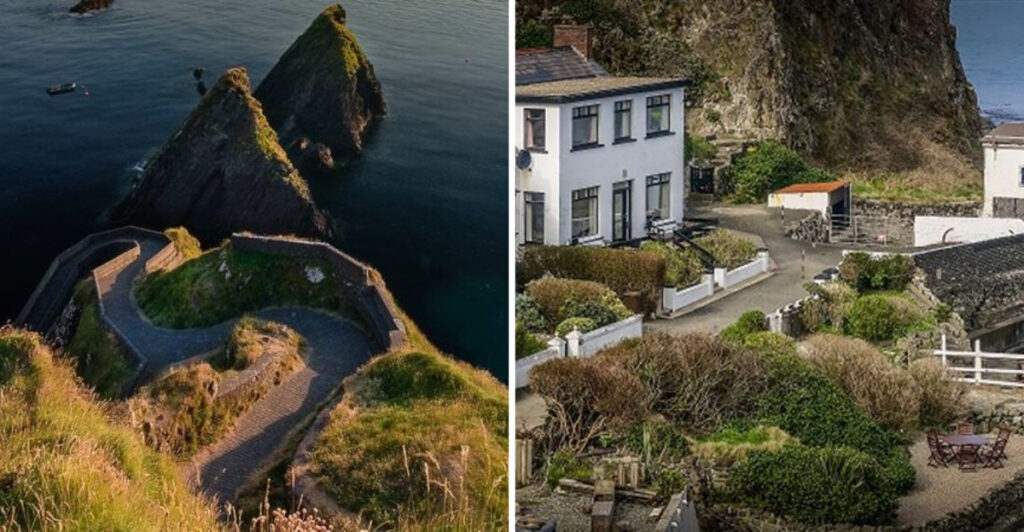Ireland holds countless treasures beyond the famous Cliffs of Moher and Ring of Kerry. Scattered across this emerald island are hidden gems that locals have quietly enjoyed for generations. Most visitors never discover these secret spots because they’re tucked away from guidebooks and tourist trails. Ready to explore Ireland like a true local?
1. Mahon Falls in the Comeragh Mountains
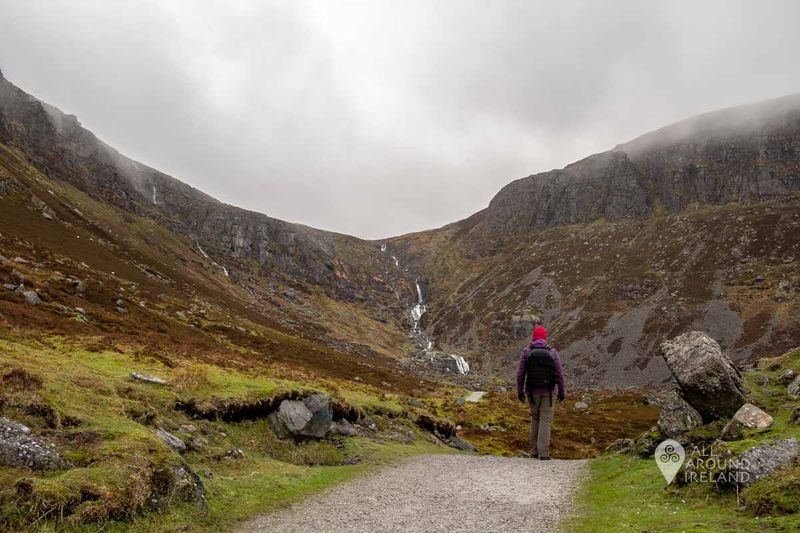
Waterfall hunters often miss this spectacular 80-meter cascade hidden in Waterford’s rugged mountains. The hike takes about 45 minutes through boggy terrain, but the reward is breathtaking.
Local farmers still graze sheep along these ancient paths. Pack sturdy boots and waterproof gear since weather changes quickly in these hills.
Early morning visits offer the best lighting for photos and fewer crowds.
2. Portbradden Village’s Tiny Harbor
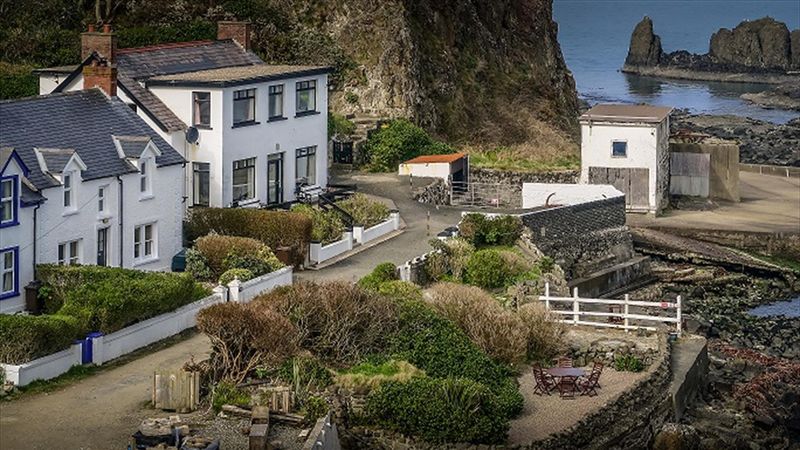
Only five houses make up this miniature fishing village on Northern Ireland’s coast. Fishermen still launch boats from the same stone slipway their grandfathers used decades ago.
The village sits beneath towering basalt cliffs near the Giant’s Causeway. Visitors can walk the coastal path but rarely venture down to this peaceful harbor.
Local families have lived here for generations, maintaining traditional fishing methods and coastal customs.
3. Lough Hyne’s Magical Marine Lake
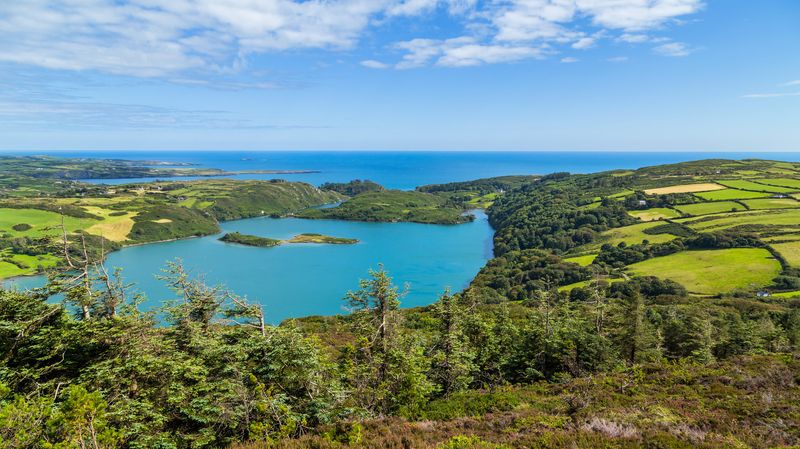
Europe’s first marine nature reserve hides in a Cork valley, connected to the sea by a narrow channel. Warm waters support Mediterranean species rarely found in Irish waters.
Locals swim here year-round, enjoying water temperatures several degrees warmer than nearby beaches. The lake glows with bioluminescent plankton during summer nights.
Scientists study this unique ecosystem while families picnic along the peaceful shores away from tourist crowds.
4. Skellig Michael’s Lesser-Known Monastery Ruins
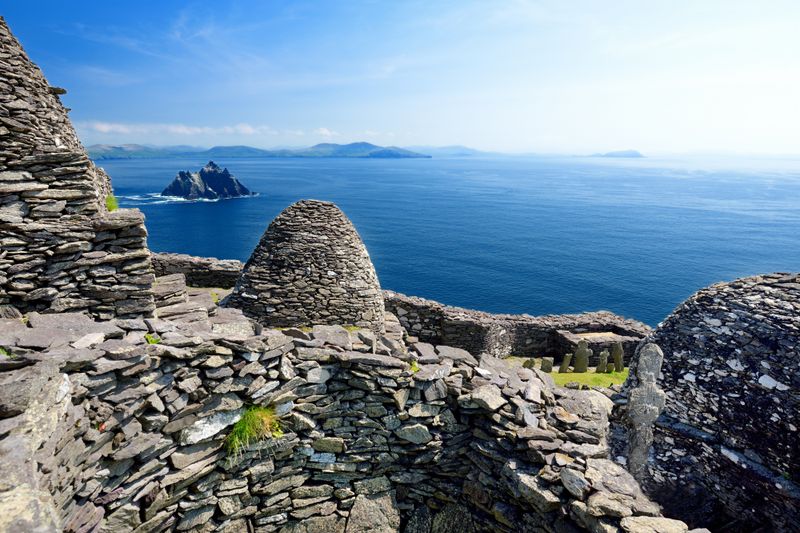
While Star Wars fans flock to Skellig Michael’s famous beehive huts, locals know about hidden hermitage cells scattered across the island. These ancient stone shelters housed solitary monks seeking ultimate isolation.
Rough seas limit access to certain times of year. Experienced climbers can explore unmarked paths leading to forgotten meditation spots.
Puffins nest nearby during breeding season, creating perfect wildlife watching opportunities for patient visitors.
5. Dunquin’s Secret Swimming Cove
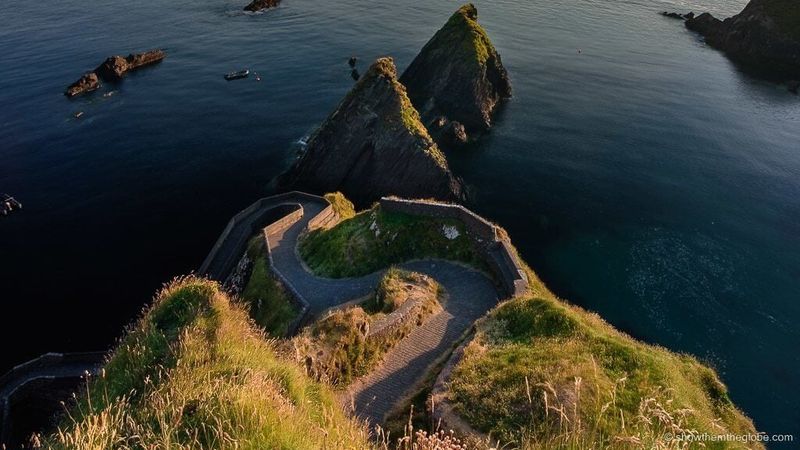
Kerry locals have kept this sheltered cove quiet for good reason. Crystal-clear water and smooth rocks create perfect natural swimming pools below dramatic cliffs.
The path down requires careful navigation through gorse bushes and over loose stones. Families from nearby villages come here for evening swims during summer months.
Seals often join swimmers in the calm waters, curious about human visitors to their peaceful domain.
6. Glenveagh Castle’s Forgotten Garden Paths
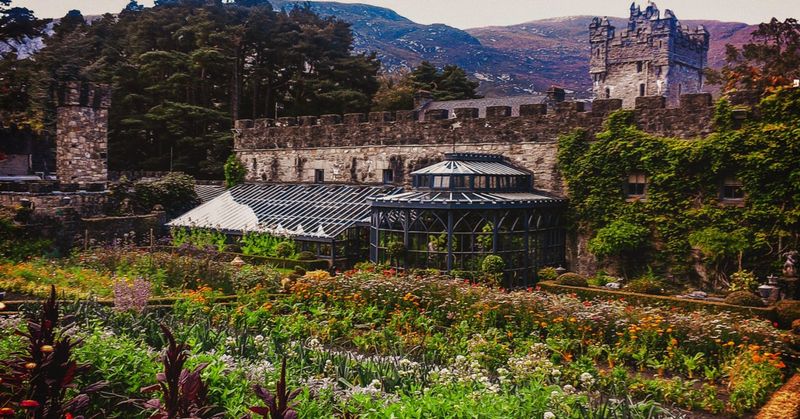
Beyond the main castle grounds lie unmarked trails leading to abandoned Victorian garden rooms. Rhododendrons and exotic plants still bloom in these forgotten corners of Donegal’s wilderness.
Groundskeepers maintain these secret areas for wildlife rather than visitors. Red deer graze peacefully among overgrown flowerbeds and crumbling stone walls.
Spring brings spectacular displays of wild flowers that few tourists ever witness in these hidden valleys.
7. Inishbofin’s Deserted Cromwell Barracks
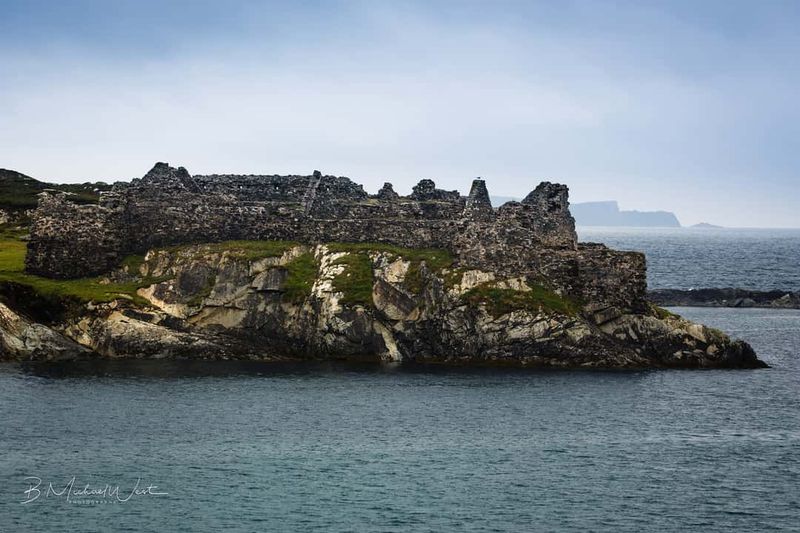
History buffs rarely discover these crumbling 17th-century fortifications on Galway’s remote island. Cromwell’s soldiers once imprisoned Catholic priests in these stone chambers.
Island residents share stories passed down through generations about ghostly apparitions and mysterious lights. The barracks overlook a pristine beach where seals bask on warm afternoons.
Boat trips to the island are weather-dependent, keeping visitor numbers naturally low year-round.
8. Burren’s Hidden Turloughs
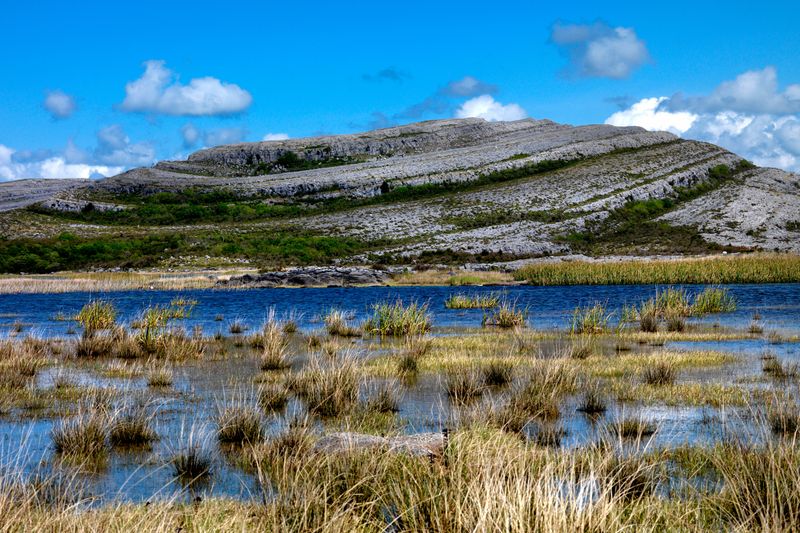
Seasonal lakes appear and disappear across Clare’s limestone landscape, creating temporary wetlands that locals call turloughs. These natural phenomena support rare plants and migrating birds.
Underground rivers cause water levels to rise and fall dramatically throughout the year. Farmers know exactly when these mysterious lakes will fill and drain.
Botanists study unique arctic and Mediterranean plants growing side by side in this strange karst environment.
9. Achill Island’s Abandoned Booley Village
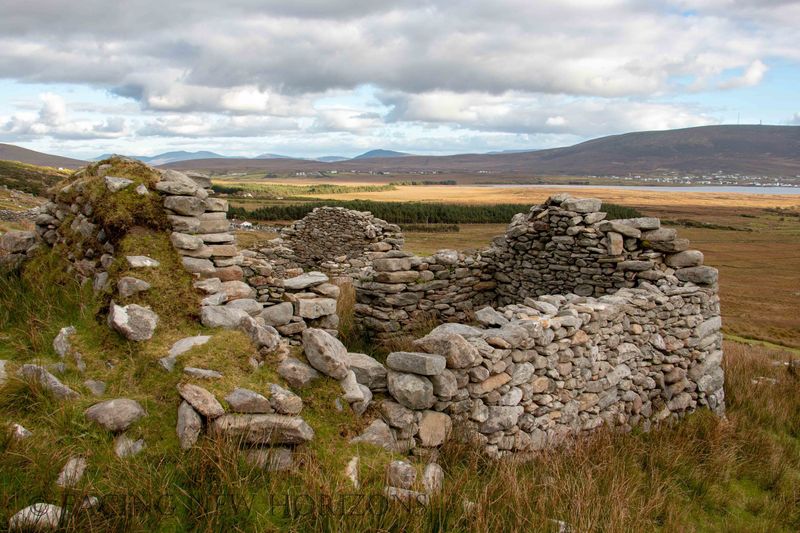
Stone ruins of summer grazing settlements dot Mayo’s mountainsides, telling stories of ancient pastoral traditions. Families once moved cattle to these high pastures each summer.
Sheep farmers still use some traditional routes their ancestors followed centuries ago. Wild weather and isolation preserved these settlements better than any museum.
Hikers discover perfectly preserved hearths and sleeping areas where generations of Irish families spent their summers.
10. Connemara’s Secret Marble Quarries
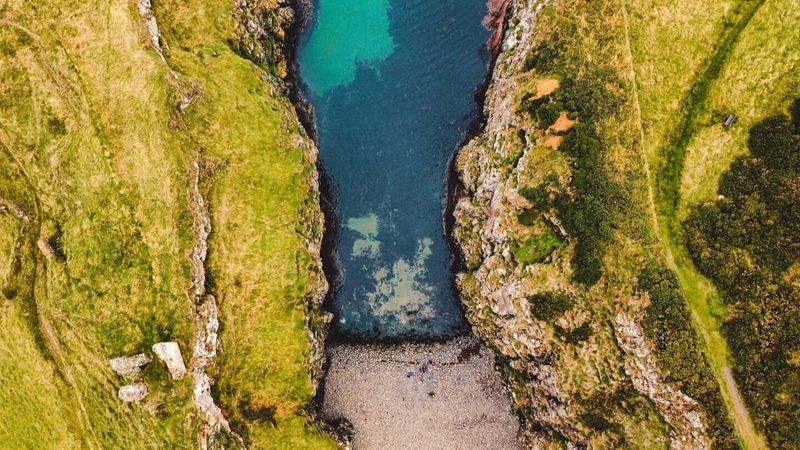
Abandoned quarries filled with emerald water hide among Galway’s mountains, remnants of Ireland’s marble industry. Local swimmers brave the cold depths during hot summer days.
Skilled stonemasons once extracted beautiful green marble from these sites for churches and monuments. Nature has reclaimed the quarries, creating stunning artificial lakes.
Rock climbers use the quarry walls for practice while artists sketch the dramatic reflections in the still water.
11. Dingle’s Forgotten Famine Cottages
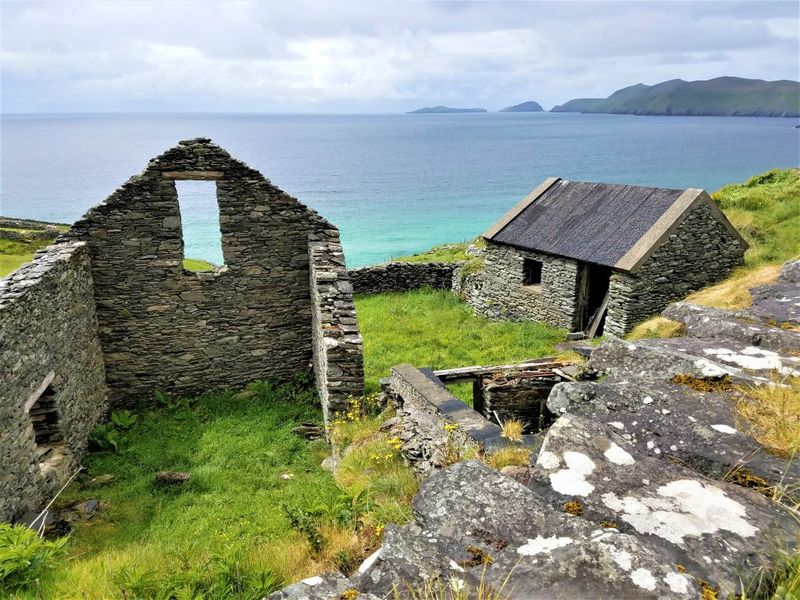
Roofless stone cottages scattered across Kerry’s peninsulas tell heartbreaking stories of Ireland’s darkest period. Families abandoned these homes during the 1840s famine, never to return.
Local historians preserve oral traditions about the people who once lived here. Wild flowers now grow where kitchen gardens once fed entire families.
Respectful visitors can explore these ruins while learning about resilience and survival during Ireland’s most challenging times.
12. Wicklow’s Secret Waterfall Pool
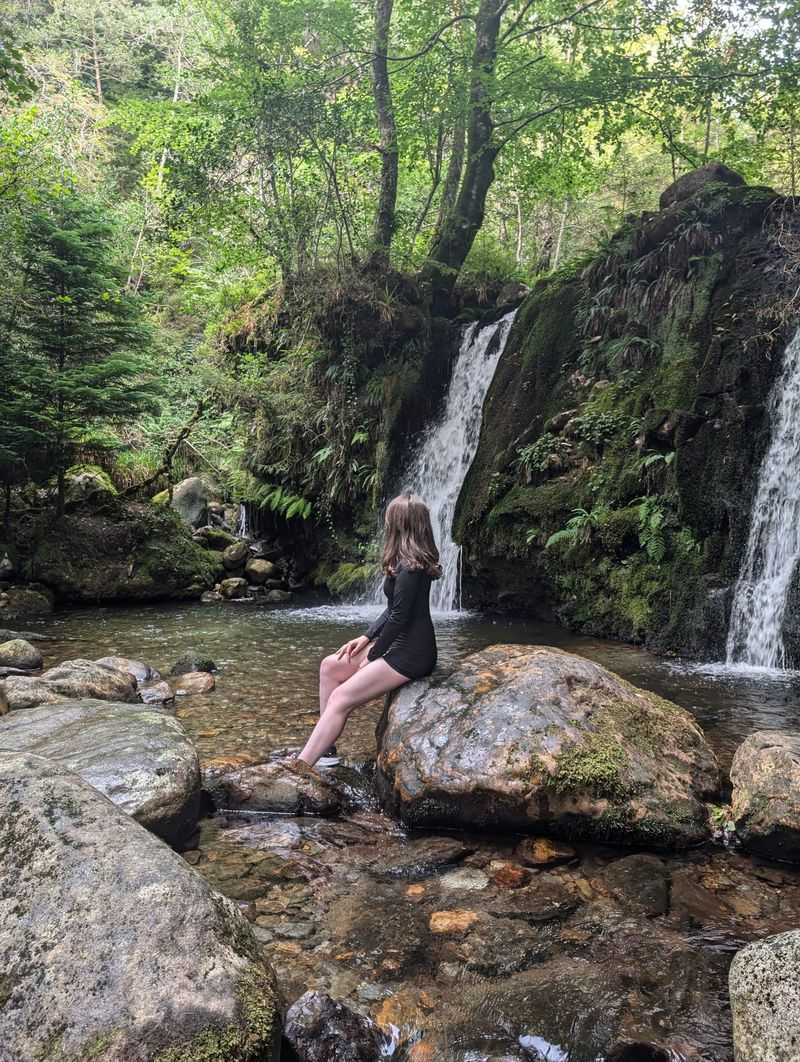
Deep in the Garden of Ireland lies a hidden waterfall feeding a crystal-clear swimming hole. Dublin families guard this location jealously, sharing it only with trusted friends.
The pool maintains refreshing temperatures even during Ireland’s warmest summers. Smooth granite rocks provide perfect diving platforms for confident swimmers.
Ancient oak trees shade the pool while mountain streams provide constant fresh water flow throughout the year.
13. Aran Islands’ Underground Chambers
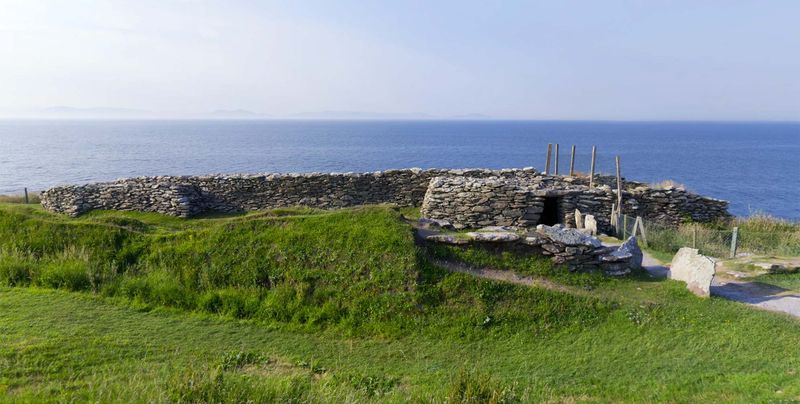
Beneath the famous stone walls lie forgotten underground storage chambers called souterrains. Ancient islanders used these spaces to hide food and valuables during Viking raids.
Island elders remember playing in these tunnels as children before tourism changed their homeland. Some chambers connect to form networks stretching across entire fields.
Archaeologists study these structures while local families continue farming the land above these mysterious underground passages.
14. Slieve League’s Hidden Shepherd’s Path
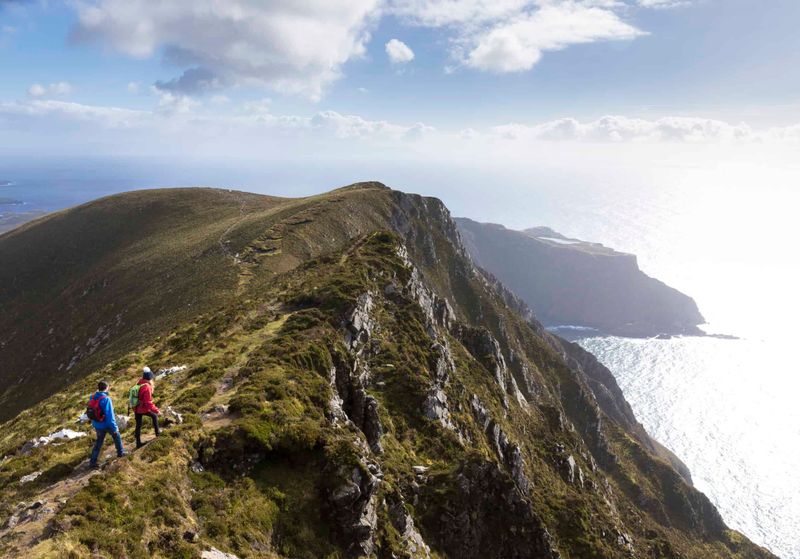
While tourists crowd the main cliff viewing areas, locals know about an ancient shepherd’s path offering even more spectacular views. The route requires steady nerves and good weather.
Donegal shepherds still use portions of this path to reach grazing areas impossible to access otherwise. Puffins nest along the cliff faces during breeding season.
Experienced hikers can follow stone markers placed by generations of farmers navigating these treacherous but beautiful heights.
15. Killarney’s Forgotten Copper Mine Caves
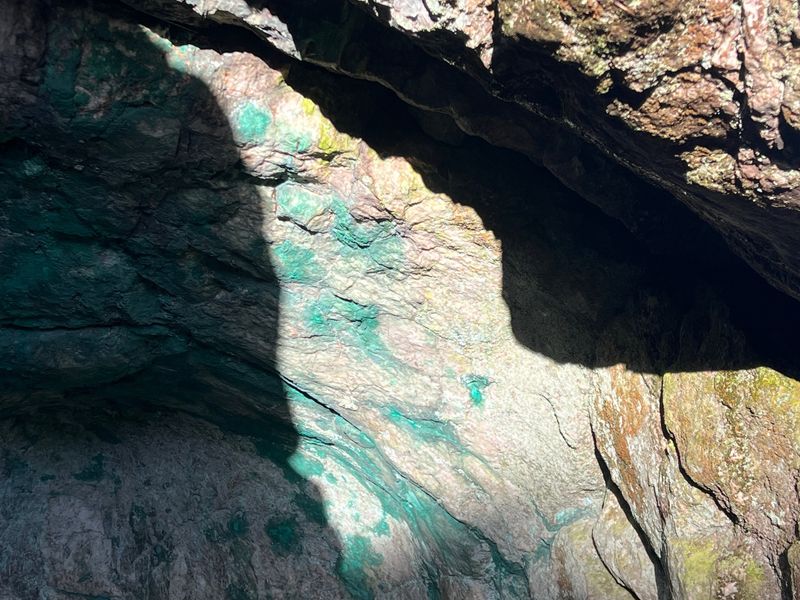
Victorian-era copper mines honeycomb the mountains around Kerry’s famous lakes, creating underground chambers that few visitors ever explore. Miners abandoned these tunnels over a century ago.
Local cavers know which passages remain safe while others have been sealed for public safety. Rare bats hibernate in the deeper chambers during winter months.
Historical societies preserve mining equipment and stories about the dangerous work that once sustained entire communities.
16. Antrim’s Secret Giant’s Causeway Extension
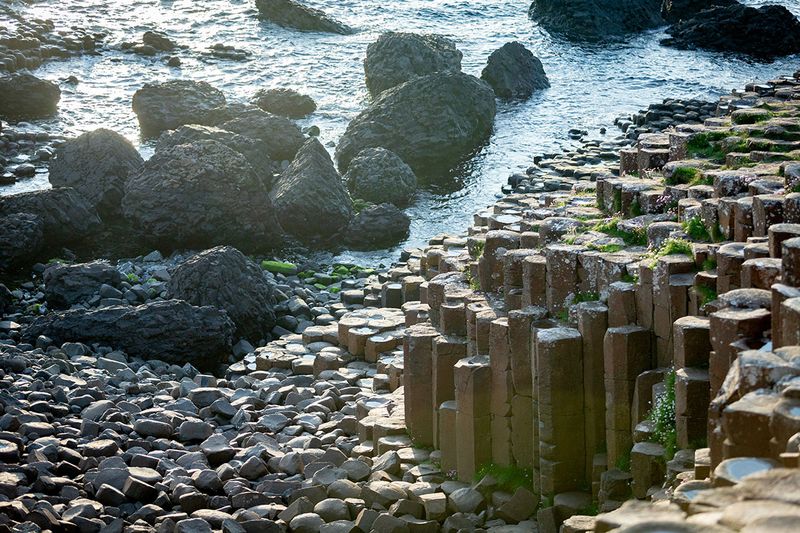
Beyond the famous hexagonal columns lies a hidden section of basalt formations that locals call the Giant’s Back Door. Fewer tourists venture to this equally spectacular area.
Geological processes created these formations millions of years ago when volcanic activity shaped Northern Ireland’s coast. Rock pools teem with marine life during low tide.
Local guides share legends about giants and warriors while explaining the fascinating science behind these natural sculptures.
17. Cork’s Abandoned Butter Market Tunnels
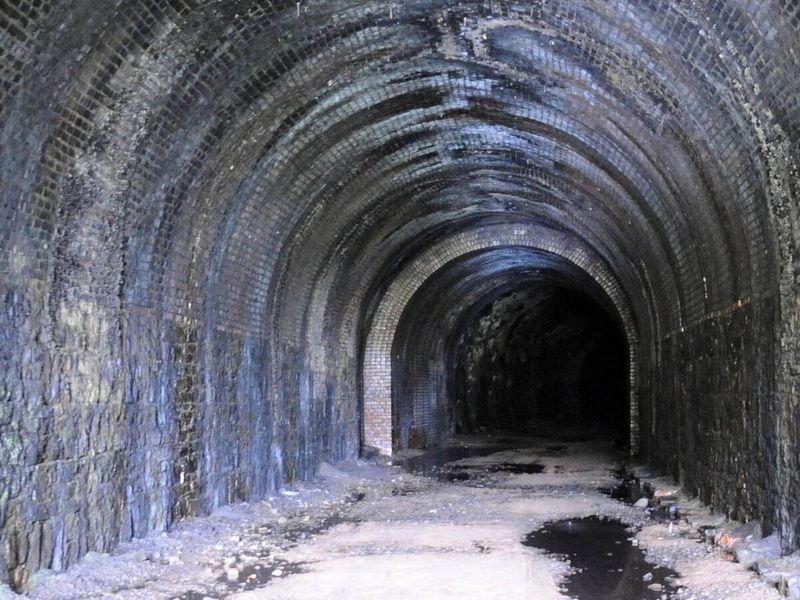
Underground passages beneath Cork city once stored butter for export worldwide, making Ireland famous for dairy products. These forgotten tunnels now house only memories and urban legends.
City historians lead occasional tours through safe sections while other areas remain off-limits. The tunnels maintained perfect temperatures for preserving butter before refrigeration.
Local businesses above ground rarely know about the complex network of chambers supporting their buildings’ foundations.
18. Donegal’s Secret Seal Nursery Beach
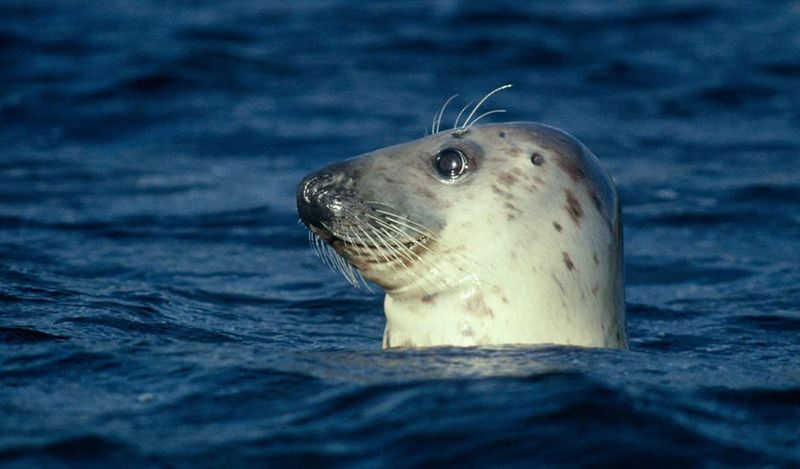
Grey seals choose this protected cove for raising their pups, creating incredible wildlife viewing opportunities for respectful visitors. The beach remains unmarked to protect the colony.
Local fishermen have watched seal families return to this spot for generations. Pups learn to swim in the calm waters while mothers hunt in deeper offshore areas.
Marine biologists study the seals’ behavior while ensuring human presence doesn’t disturb these magnificent creatures during vulnerable times.
19. Galway’s Hidden Tidal Island
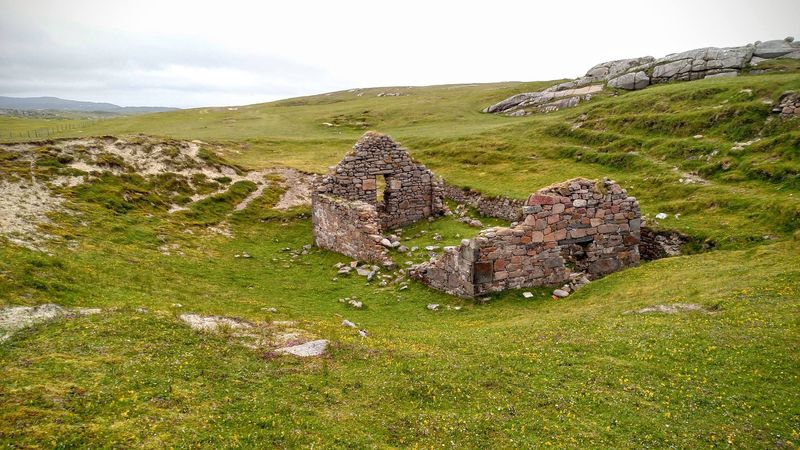
Accessible only during low tide, this small island near the city holds ruins of a medieval church and ancient burial ground. Rising waters cut off visitors who don’t time their trips carefully.
Local families visit during spring tides to tend ancestral graves and maintain the small stone chapel. Seabirds nest undisturbed when the island becomes temporarily isolated.
Tide tables and local knowledge are essential for safe visits to this remarkable piece of living history.
20. Tipperary’s Forgotten Holy Well Circuit
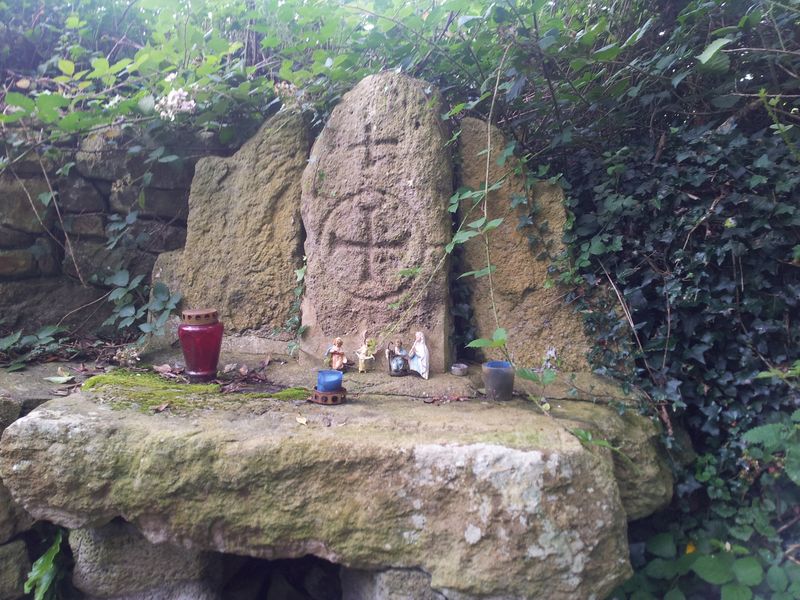
Seven sacred wells connected by ancient pilgrimage paths wind through countryside that tourists rarely explore. Locals still visit these wells for traditional blessings and quiet reflection.
Each well has unique healing properties according to centuries-old beliefs passed down through generations. Stone crosses and carved inscriptions mark the traditional route.
Pilgrims complete the circuit during religious festivals while others simply enjoy the peaceful walk through beautiful rural landscapes.
21. Limerick’s Secret Underground River
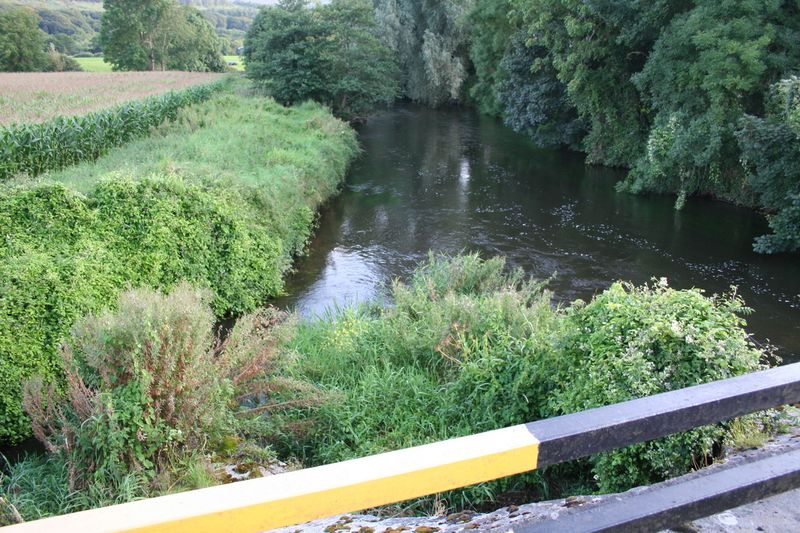
The buried Camogue River flows beneath city streets, occasionally visible through grates and basement windows. Urban explorers and local historians know where to find these hidden waterways.
Medieval builders diverted the river to power mills and protect the city from flooding. Modern development covered most of the watercourse but didn’t eliminate it entirely.
City engineers monitor the underground flow while residents above remain unaware of the river running beneath their feet.
22. Wexford’s Abandoned Lighthouse Island
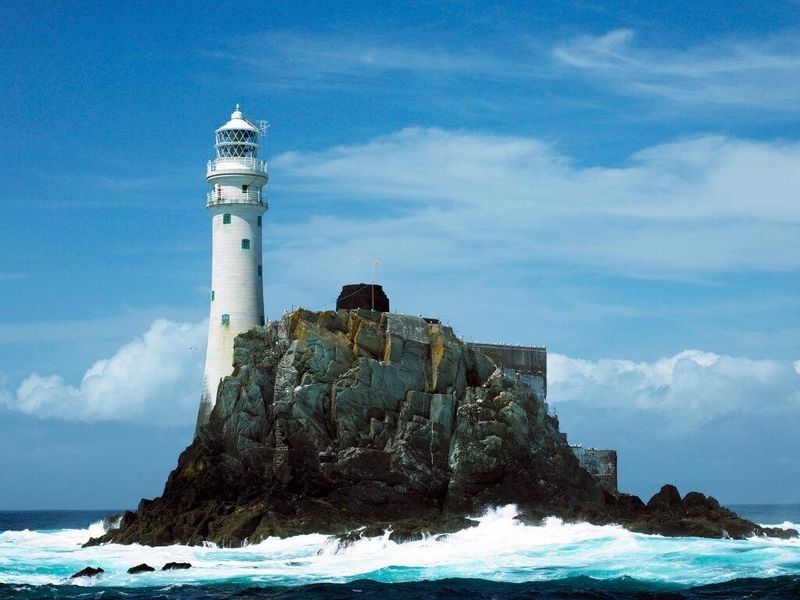
A decommissioned lighthouse stands guard over a tiny island that few boats ever visit. Automated navigation systems replaced the lighthouse keeper who once lived in complete isolation.
Seabirds have reclaimed the island, creating important nesting habitat protected from mainland predators. The lighthouse beam once guided ships safely through treacherous coastal waters.
Boat charters occasionally visit during calm weather, but most people only glimpse this lonely sentinel from the distant shore.
23. Sligo’s Secret Megalithic Tomb Valley
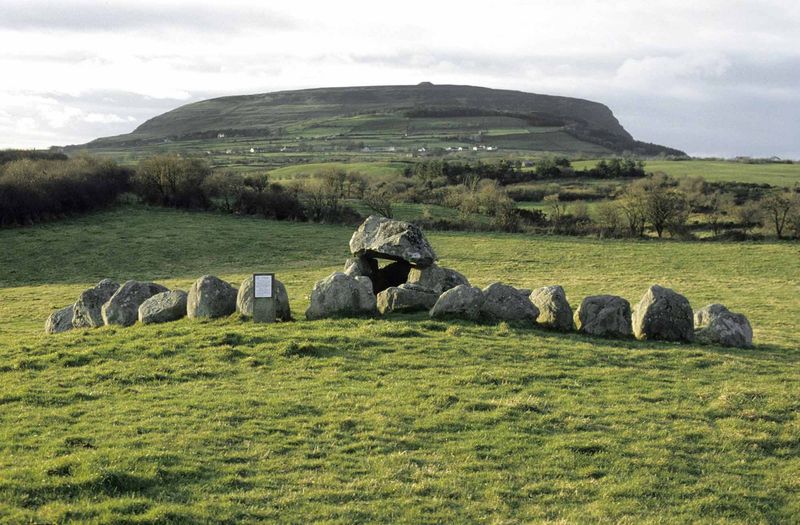
Hidden among rolling hills lies a concentration of Stone Age burial sites that archaeologists are still discovering. Local farmers have protected these ancient monuments for generations.
Passage tombs and stone circles dot the landscape, predating Stonehenge by thousands of years. Archaeological surveys continue revealing new sites previously unknown to science.
Respectful visitors can explore this outdoor museum while learning about Ireland’s earliest inhabitants and their sophisticated understanding of astronomy and engineering.

